Charleston Currents #11.22 | April 8, 2019
REMEMBERING FRITZ. Talented cartoonist Robert Ariail sent along the above work to share with people as a tribute to the late Gov. and U.S. Sen. Fritz Hollings, who passed away Saturday. The senator’s body will lie in state in Columbia at the Statehouse on Monday, April 15. A funeral is planned for Charleston at 11 a.m. April 16 in Summerall Chapel at The Citadel. More information is online at: FritzHollings.com
 FOCUS: Film about libraries, homeless to have Charleston premiere Friday
FOCUS: Film about libraries, homeless to have Charleston premiere Friday
COMMENTARY, Brack: Thank you, Fritz Hollings
IN THE SPOTLIGHT: Charleston International Airport
GOOD NEWS: Walters inaugurated; Port volume up
FEEDBACK: Send us your thoughts
MYSTERY PHOTO: This one may be too tough
S.C. ENCYCLOPEDIA: Ernest F. Hollings
CALENDAR: Lots going on in the area
FOCUS: Charleston premiere of film about libraries, homeless is Friday
Staff reports | Two local organizations that support libraries have arranged for the Charleston premiere on Friday of a new movie that explores homelessness and public space. A panel discussion with area librarians about the issues in the film will follow.
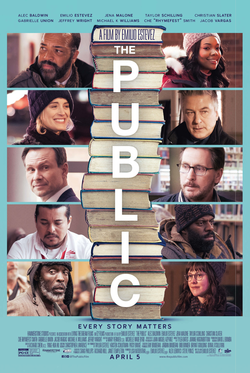 “The Public,” which had its U.S. release last week in selected theaters, features Emilio Estevez, who wrote, directed and starred in the film, and a host of familiar actors, including Alec Baldwin. The first Charleston viewing will be 7 p.m. Friday at the Terrace Theater on James Island.
“The Public,” which had its U.S. release last week in selected theaters, features Emilio Estevez, who wrote, directed and starred in the film, and a host of familiar actors, including Alec Baldwin. The first Charleston viewing will be 7 p.m. Friday at the Terrace Theater on James Island.
“The movie has been viewed by librarians at American Library Association meetings and has been met with much acclaim,” said Janet Segal, chair of the Library Foundation of the Lowcountry. “We are excited to premiere this film in Charleston plus offer a unique opportunity to further discuss the movie and the issue with representatives from public library systems of Charleston, Berkeley and Dorchester counties.””
Brittany Mathis, executive director of the Charleston Friends of the Library, added, “Libraries are much more than a place to borrow the latest Toni Morrison – you can get internet access, learn a new skill and engage in civic discussions. But for the homeless population, libraries have also been used as a place for shelter from cold weather.”
Both groups collaborated to bring the movie to Charleston.
“This event is also an opportunity to celebrate the first working partnership between the Foundation, the Charleston Friends of the Library and all three library systems,” Segal said. “We look forward to hosting movie-goers from the tri-county!”
The Friends of the Library have been supporting Charleston libraries for years, making donations to the Charleston system of more than $100,000 annually for programs in libraries. The Foundation, formed two years ago, also provides funding to tri-county public libraries for extraordinary projects and programs that are not funded by local governments. The Foundation seeks to engage donors and the community in shaping and supporting libraries through community programming that focuses on social justice, added Segal, a former chair of the Charleston County Public Library Board of Trustees.
The film will be shown at 7 p.m. April 12 at the Terrace Theater, 1956 Maybank Highway, James Island. Tickets are $10 for members of the Friends of the Library and $12 for non-members.
Following the film will be a panel discussion featuring Darlene Jackson, acting director of the Charleston County Public Library; Gene Brunson, director of the Berkeley County Library System; and Jenn Gleber, branch and public relations manager of the Dorchester County Library in Summerville.
- Click here to learn more and purchase tickets.
- Have a comment? Send to: editor@charlestoncurrents.com
BRACK: Thank you, Fritz Hollings
Editor’s note: Former S.C. Gov. and U.S. Sen. Fritz Hollings passed away Saturday morning of natural causes in his home at Isle of Palms, S.C. This is a day many never wanted to see. This commentary was first published in April 2015.
By Andy Brack, editor and publisher | No one in modern time has given as much to South Carolina as Fritz Hollings. In seven decades of public service – starting as a young officer in World War II to becoming governor to being elected seven times to the United States Senate, Hollings has given back in big ways.
 Most recently, he made news [in 2015] after he asked for his name to be taken off of a federal judicial annex in Charleston and for it to be named to honor the late U.S. District Judge Waties Waring, the courageous civil rights jurist from Charleston who paved the way for landmark school integration in the United States.
Most recently, he made news [in 2015] after he asked for his name to be taken off of a federal judicial annex in Charleston and for it to be named to honor the late U.S. District Judge Waties Waring, the courageous civil rights jurist from Charleston who paved the way for landmark school integration in the United States.
Through the years, Hollings has left a huge mark that is still paying dividends today. He’s the guy who pushed through stable funding for schools in the early 1950s and later started the technical college system, which attracts companies like BMW and Boeing. Prior to retiring in 2005, he led major policy initiatives to protect oceans, thwart hunger and promote health care that are still having impacts today. Without Hollings’ leadership, it would have taken more time for a telecommunications revolution that put smartphones in our pockets and revolutionized the cable TV industry.
There’s no one alive who better represents why public service is critical to America than Fritz Hollings. But beyond his legendary leadership for our nation and state is the quiet, untold story of how he molded careers and shaped lives of the people who worked for him. His steady guidance and daily example of doing the right thing and steering people in the right direction made better people of those who worked for him.
“He tested you hard and pushed you to learn,” one former staffer recalls. “He pushed you to think about things from different angles, ones that you didn’t even know existed. He prepared you for any challenge.”
Another staffer, now a Washington lawyer, says a day doesn’t go by without him thinking about Hollings or using something learned from him: “Never stop learning. Look at a problem from six different directions. Never underestimate the power of a well-timed quip to change the dynamic and drive home your point. And, of course, there is no education in the second kick of a mule.”
As a young governor working to bring jobs to South Carolina. Click here to see a photo gallery.
An illustration of Hollings’ renowned humor — people still never know exactly how he is going to frame an issue — came during a confirmation hearing for an Federal Aviation Administration official. A staffer from Charleston still remembers what Hollings said 20 years ago in a discussion of Atlanta’s busy airport: “If Sherman had had to go through that place on the way to the sea, we’d have won that damned war!”
Fritz Hollings changed the lives of citizens and his staff. He continues to inspire people, as noted by one South Carolina woman who worked for him: “He taught me about personal responsibility — especially dealing with mistakes. Never throw a colleague under the bus. Claim the mistake, take the heat, be quick to forgive, accept and move on.”
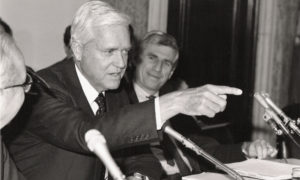 Years ago when it was clear the shipyard and Navy base in Charleston were on a federal list for closure, Hollings’ response was not to keep it quiet and do a political dance around the issue. Instead, he took it head on and told voters what he had learned. Why? Because they deserved to know quickly so they could get as much time as possible to make the case to keep the facility. He took some hits. People didn’t believe him. But it was the right thing to do.
Years ago when it was clear the shipyard and Navy base in Charleston were on a federal list for closure, Hollings’ response was not to keep it quiet and do a political dance around the issue. Instead, he took it head on and told voters what he had learned. Why? Because they deserved to know quickly so they could get as much time as possible to make the case to keep the facility. He took some hits. People didn’t believe him. But it was the right thing to do.
My parents taught me the difference between right and wrong. They made me who I am in so many ways. But with the guidance of Fritz Hollings through the years, I and others who worked for him learned practical ways to interact and serve. We learned there’s always a way to get something done. We learned to inspire by example, fight for principles and never give up. We saw power wielded wisely.
And more than anything, we learned to think of others first. For all of these gifts, we are eternally grateful.
Thank you, senator. Rest in peace.
Brack served as Hollings’ spokesman from 1992 to 1996. Have a comment? Send to: editor@charlestoncurrents.com
SPOTLIGHT: Charleston International Airport
 Today we shine a spotlight on Charleston International Airport, which provides a first impression of the Charleston metropolitan area to over 4 million passengers a year who visit for business and leisure activities. One of three public airports operated by the Charleston County Aviation Authority, Charleston International Airport is committed to providing an unparalleled passenger experience while continuing efforts to support economic development for the Lowcountry and State of South Carolina.
Today we shine a spotlight on Charleston International Airport, which provides a first impression of the Charleston metropolitan area to over 4 million passengers a year who visit for business and leisure activities. One of three public airports operated by the Charleston County Aviation Authority, Charleston International Airport is committed to providing an unparalleled passenger experience while continuing efforts to support economic development for the Lowcountry and State of South Carolina.
Eight airlines currently serve Charleston International Airport, which have jobs that create more than $200 million in income for workers in the region. Visiting passengers also spend about $450 million a year directly in area businesses, which sustains an estimated 6,000 jobs locally. The total economic impact of the Charleston International Airport is over $1 billion dollars to the Lowcountry and State of South Carolina.
- To learn more about Charleston International Airport, please visit iflyCHS.com.
- To meet all of our underwriters, click here.
MY TURN
The women of Magnolia share a love of nature and beauty
By Herb Frazier, special to Charleston Currents | Decades ago when Magnolia Plantation and Gardens only opened the gates during the azalea-bloom season, Nona Hastie Valiunas and one of her cousins hid in the bushes then jumped out to scare the tourists. It was a playful time for young Nona who now shares ownership of the gardens that has been in her family for more than three centuries.
Today, when Valiunas visits Magnolia and mingles with the tourists she looks up at a massive oak laced with Spanish moss. Standing near Magnolia’s iconic White Bridge, the tree is special to her not for its beauty but for the memories it holds.
A metal box high up in the oak contains the ashes of Valiunas’s father, John Drayton Hastie Sr., Magnolia’s owner who passed away in 2002. “My father’s tree is my favorite spot in the gardens.” Hastie’s death created the opportunity for Valiunas to become one of the owners of this historic property that has mostly been controlled by a male heir in the Drayton/Hastie Family.
As the family’s matriarch, Valiunas reflects on the women in Magnolia’s history who were involved in adding social flare to the gardens during the Charleston Renaissance and others who joined the fight against slavery.
Valiunas explained that Ann Fox may have been Magnolia’s first female owner in the 17th century. “Stephen Fox gave the property as a wedding gift to his daughter Ann Fox when she married Thomas Drayton,” she said. “So perhaps it would be technically correct to say that Ann was the first female who shared Magnolia’s ownership. But, in the centuries to follow, the title was inevitably passed to the oldest male heir.”
The family sidestepped this custom in the 1800s when one of the Drayton men had only daughters. “In order to satisfy the requirement of passing on property only to the elder son, (another Thomas Drayton) told his daughter, Sarah, who had married into the prestigious Grimké family, that he would leave Magnolia to her sons only if they changed their surname from Grimké to Drayton.”
Subsequently, Sarah’s son, the Rev. John Grimké Drayton, who established the gardens at Magnolia in the 1840s, became Magnolia’s owner and, ironically, he had no sons. He did not feel compelled by “the onus of primogeniture and, instead, left the gardens and the property to his elder daughter, Julia. Thus, the whole issue of primogeniture was thrown out the window. What had been completely unacceptable to his grandfather – leaving the property to a girl – was perfectly okay to Rev. John.”
Sara Drayton’s marriage into the Grimké family linked the Draytons to two women who would become leading voices in the abolitionist movement. Rev. Drayton’s aunts were Sarah and Angelina Grimké, prominent abolitionists who left the state because of their views in slaveholding South Carolina. “There wasn’t much talk about the Grimké sisters when I was a little girl,” Valiunas recalled. “What interested me most about the sisters was how completely they stepped outside their time and place. This, I believe, was very rare and requires both exceptional courage and particular timing. We are all molded by the mores of our family, our faith, our culture and our time. Angelina and Sarah walked away from everything. They left Charleston. They opposed slavery, which signified not only a repudiation of all they were raised to believe, but was also a direct repudiation of their mother and their father. I am most interested in what qualities of character come before such an exquisite leap. What creates such heroes?”
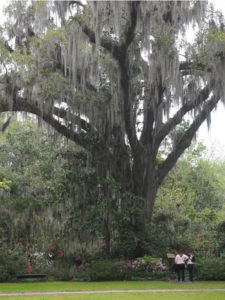 When Valiunas’ paternal grandmother Sara Hastie was Magnolia’s matriarch the parties at the gardens drew a who’s who of important people of the 1920s. The guest list included British writer Somerset Maugham, Russian novelist Vladimir Nabokov and British diplomat Harold Nicholson. They and others milled around the gardens with cocktails in hand and cigarettes dangling from their lips.
When Valiunas’ paternal grandmother Sara Hastie was Magnolia’s matriarch the parties at the gardens drew a who’s who of important people of the 1920s. The guest list included British writer Somerset Maugham, Russian novelist Vladimir Nabokov and British diplomat Harold Nicholson. They and others milled around the gardens with cocktails in hand and cigarettes dangling from their lips.
“My grandmother was much more than a socialite,” Valiunas said. “She was a grand old lady, outspoken, opinionated, sardonic, with a marvelous sense of humor and a good mind. She did not particularly care about what other people thought, and she placed more value on a good joke or a good book than she did on the trappings of society. In the later years of her life, she held court on the porch at 9 East Battery (in Charleston) every afternoon at 4 p.m. The door was always open, the bourbon flowed and friends young and old stopped by to pay their respects and hear her stories. She was one of a kind, a true Charleston character in a town then famous for them.”
In contrast, Valiunas’ mother, Fernanda de Mohrenschildt Hastie, was cut from a different cloth. Fernanda Hastie lived at Magnolia when she passed away in 2013. She was 94. She was unique among the Magnolia women. “My mother was a kind, humble woman who seemed to have no ulterior motives and no agenda, except always to laugh and always to support every single person who crossed her path. She looked on the bright side of every adversity, and she rarely thought of herself first. No one – not a single person – disliked her.”
Magnolia women, Valiunas said, were smart and strong-willed. “It always has been said that the family produces one person each generation who has a particular love of gardening, a particular love for the land. Perhaps that’s the greatest commonality. All the Magnolia women share that affinity with nature, that love of beauty.”
Herb Frazier, an author and former reporter with The Post and Courier, oversees public relations at Magnolia Plantation and Gardens.
Citadel president inaugurated; Ports have record month
In recent Good News:
![]() New president inaugurated. Congratulations to Gen. Glenn Walters, 20th president of The Citadel, who was inaugurated April 5 in a ceremony that featured several notable speakers, including Gov. Henry McMaster and Charleston Mayor John Tecklenburg. According to The Citadel, Walters discussed how he plans to preserve, protect and advance The Citadel while producing principled leaders. At the very end of remarks, Walters granted all eligible cadets weekend leave as well as amnesty, which excuses cadets from un-served punishments.
New president inaugurated. Congratulations to Gen. Glenn Walters, 20th president of The Citadel, who was inaugurated April 5 in a ceremony that featured several notable speakers, including Gov. Henry McMaster and Charleston Mayor John Tecklenburg. According to The Citadel, Walters discussed how he plans to preserve, protect and advance The Citadel while producing principled leaders. At the very end of remarks, Walters granted all eligible cadets weekend leave as well as amnesty, which excuses cadets from un-served punishments.
Port volume to new record. The South Carolina Ports Authority announced recently it had the strongest March in its history and more than 11 percent fiscal year-over-year growth. The port moved 214,123 twenty-foot equivalent container units (TEUs) in March, making it the second highest month in its history, according to a press release. The highest monthly record was 217,035 TEUs in October 2018. “The record volumes achieved last month reflect a very positive end to our third quarter of the fiscal year,” said Jim Newsome, SCPA president and CEO. “SCPA also saw the highest month of export loads since the fiscal year began in July 2018, with 42,524 export loads handled. The Port is well-positioned as it heads into the fourth quarter.”
Send us your thoughts
We’d love to get your impact in one or more ways:
Send us a letter: We love hearing from readers. Comments are limited to 250 words or less. Please include your name and contact information. Send your letters to: editor@charlestoncurrents.com. | Read our feedback policy.
Tell us what you love about the Lowcountry. Send a short comment – 100 words to 150 words – that describes something you really enjoy about the Lowcountry. It can be big or small. It can be a place, a thing or something you see. It might the bakery where you get a morning croissant or a business or government entity doing a good job. We’ll highlight your entry in a coming issue of Charleston Currents. We look forward to hearing from you.
This mystery may be too tough
A loyal reader sent along this photo to be a mystery. Where is it? If you’re stumped, don’t worry — it may be too tough. Send your guess to mailto:editor@charlestoncurrents.com. And don’t forget to include your name and the town in which you live.
Our previous Mystery Photo
 Our April 1 mystery, “Look familiar?” should have looked familiar if you live in Berkeley County. It showed the old train station in Moncks Corner. Only three veteran sleuths — none of whom currently live in the Lowcountry — guessed correctly. Congratulations to: George Graf of Palmyra, Va.; Marnie Huger of Richmond, Va.; and Bill Segars of Hartsville
Our April 1 mystery, “Look familiar?” should have looked familiar if you live in Berkeley County. It showed the old train station in Moncks Corner. Only three veteran sleuths — none of whom currently live in the Lowcountry — guessed correctly. Congratulations to: George Graf of Palmyra, Va.; Marnie Huger of Richmond, Va.; and Bill Segars of Hartsville
Graf provided additional context thanks to 3dwarehouse.sketchup.com: “Although Moncks Corner dates back to 1735, the modern town began to take shape when the railroad arrived. In 1853, the North East Railroad began laying new tracks and Moncks Corner became a scheduled stop in 1856. Built in 1884, the first Depot was across the street from the current location. After its destruction by fire in 1915, the existing building was constructed.
“For years, the Depot was the center of Moncks Corner, as depots were for small towns all across America. As the hub for local businesses and government, mail and news of the outside world came through the Depot and local farmers used the Depot to send their crops to market. After World War II, with declining rail travel and increasing auto and truck traffic, many depots were resigned to neglect, vandalism, and the wrecking ball. Moncks Corner wisely chose to save its important landmark and infuse it with life. Renovated in 2000 and serving as the Town’s Visitor and Cultural Center, the Depot provides a place to hold special events and classes, as well as a gift shop. The Depot has come full circle, once again serving as a commercial and social center for Moncks Corner.”
Send us a mystery: If you have a photo that you believe will stump readers, send it along (but make sure to tell us what it is because it may stump us too!) Send it along to editor@charlestoncurrents.com.
HISTORY: Ernest F. Hollings
S.C. Encyclopedia | Ernest Frederick “Fritz” Hollings was born in Charleston on New Year’s Day 1922 to the salesman Adolph G. Hollings and Wilhelmine Meyer. He received his bachelor of arts degree from the Citadel in 1942 and entered the U.S. Army, serving in World War II in North Africa and France. On his return from the war in 1945, Hollings entered the University of South Carolina School of Law. On March 30, 1946, he married Martha Patricia Salley. They had five children, two of whom died young. Hollings received his bachelor of laws degree in 1947 and joined the Charleston law firm of Meyer, Goldberg and Hollings.
In 1948, Hollings ran successfully for the South Carolina House. Representing Charleston County from 1949 to 1954, he became a protégé of Speaker Sol Blatt. Hollings authored a major antilynching bill in 1951 and led in passing the three-percent sales tax adopted that year to finance school needs. He served as Speaker pro tempore from 1951 to 1954. Elected lieutenant governor in 1954, Hollings was particularly active in Governor George Bell Timmerman’s administration, working to promote industrial development and economic diversification. The following year Hollings was appointed to the Hoover Commission on Organization of the U.S. Executive Branch.
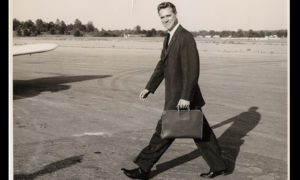 In 1958 Hollings was elected governor on a multifaceted platform that focused on balancing the state budget, bringing new industry to South Carolina, improving public education, and promoting technical education. Inaugurated in January 1959, Hollings’ administration represented a major transitional period in state government. He maximized the authority of the office of governor and used that power to work with the General Assembly in developing the state’s resources and programs. His legacy included the establishment of the state’s technical education system and educational television network. While helping prepare a skilled labor pool attractive to business, the technical education system also improved employment opportunities generally. The sweeping changes in the state’s educational system included significant increases in teacher salaries to bring them closer to the regional average. The State Development Board was expanded and given a leadership role in attracting new business and diversifying the state’s economy.
In 1958 Hollings was elected governor on a multifaceted platform that focused on balancing the state budget, bringing new industry to South Carolina, improving public education, and promoting technical education. Inaugurated in January 1959, Hollings’ administration represented a major transitional period in state government. He maximized the authority of the office of governor and used that power to work with the General Assembly in developing the state’s resources and programs. His legacy included the establishment of the state’s technical education system and educational television network. While helping prepare a skilled labor pool attractive to business, the technical education system also improved employment opportunities generally. The sweeping changes in the state’s educational system included significant increases in teacher salaries to bring them closer to the regional average. The State Development Board was expanded and given a leadership role in attracting new business and diversifying the state’s economy.
As it became clear that federal courts would mandate that South Carolina end segregation in its schools, Hollings, who formerly had supported segregation, worked to ensure that integration would occur without the bloodshed and hostility that characterized this transition in other southern states. In his final address to the General Assembly on January 9, 1963, Hollings urged the state to accept integration peacefully. He called on the legislature to exhibit courage and “make clear South Carolina’s choice, a government of laws rather than a government of men.” Harvey Gantt, a black student, was admitted to Clemson University before the month was out and the University of South Carolina was integrated peacefully in the fall. Don Fowler, a political scientist and former chairman of the national Democratic Party, described Hollings the governor as, “The leader who best exemplified the creativity and leadership that transformed the South to a new era of progress and prosperity. While many have improved and added to the programs that he created, we still work with the basic institutional arrangements he created and we still benefit from them.”
In 1962, Hollings unsuccessfully challenged South Carolina’s aging but popular senior U.S. Sen. Olin D. Johnston, in the Democratic primary. When Johnston died in 1965, Donald S. Russell stepped down as governor and was appointed to the Senate by his successor, Robert McNair. In November 1966, Hollings defeated Russell in the special election to fill the remainder of Johnston’ s unexpired term.
Entering the U.S. Senate in January 1967, Hollings became an acknowledged authority on the budget, telecommunications, the environment and oceans, defense, trade, and space. Hollings authored the Coastal Zone Management Act (1972), coauthored the Gramm-Rudman-Hollings Deficit Reduction Act (1985), and led in the creation of the WIC Program (supplemental food program for Women, Infants, and Children) and passage of the Telecommunications Act (1996). His U.S. Senate appointments included the committees on Commerce, Science and Transportation, Appropriations, and Budget. A noted fiscal conservative, Hollings nevertheless enjoyed great success in securing federal dollars for South Carolina projects and was a leading advocate of the textile industry.
His book, The Case Against Hunger (1970) was a product of his “Hunger Tours” of 1969, which highlighted the severe problems of the South Carolina poor. Hollings wrote, “I hope by this book to make you believe that hunger exists in this land, that hunger poses dangers to our nation, and that hunger is costing this country far more in dollars than the most elaborate array of feeding programs.” The statement reflected his propensity to take the long view on budget issues and spend and sacrifice now in order to improve the lot of the citizenry and save money in the long run, balancing humanity with fiscal conservatism. An immediate product of the Hunger Tours was the inclusion of South Carolina in a national pilot program distributing food stamps.
In 1983, Hollings mounted a campaign for the Democratic presidential nomination. His fresh voice and strong agenda won favor with the media, but failed to excite voters. He withdrew from the crowded field in March 1984.
Divorced from his first wife in 1970, Hollings married Rita “Peatsy” Liddy on August 21, 1971. Mrs. Hollings quickly became an active and skillful advocate for her husband’s legislative objectives and political aspirations. During Hollings’ 1984 presidential campaign, a Virginia newspaper said of her, “More than any other candidate’s wife, she is ready and able to speak up on issues.” Reelected to a sixth and final term as U.S. senator in 1998, Hollings continued to state that “performance is better than promise.” This was more than a campaign motto; it was his calling card and the reason for his success in politics and government.
[Hollings retired from the Senate in 2005 after 38 years of service. In 2008, he published another book, Making Government Work (USC Press.) Hollings died Saturday of natural causes at age 97 at his home on the Isle of Palms. His wife died in 2012.]
— Excerpted from an entry by Herb Hartsook. To read more about this or 2,000 other entries about South Carolina, check out The South Carolina Encyclopedia by USC Press. (Information used by permission.)
CALENDAR: Lots to do this spring
![]() CSO League’s 2019 Designer Showhouse: Through April 28, 16 Rutledge Ave., Charleston. An elegant 1903 high-style Queen Anne Victorian house on Rutledge Avenue near Colonial Lake will be featured as the 42nd annual designer showhouse for the Charleston Symphony Orchestra League. Read more here in our March 18 story. The house, as well as a SCORE pop-up shop with specially-curated items, will be open 10 a.m. to 4 p.m., Monday through Saturday, and 1 p.m. to 4 p.m. on Sundays, except on Easter. Tickets at the door will be available beginning March 27 for $25 each.
CSO League’s 2019 Designer Showhouse: Through April 28, 16 Rutledge Ave., Charleston. An elegant 1903 high-style Queen Anne Victorian house on Rutledge Avenue near Colonial Lake will be featured as the 42nd annual designer showhouse for the Charleston Symphony Orchestra League. Read more here in our March 18 story. The house, as well as a SCORE pop-up shop with specially-curated items, will be open 10 a.m. to 4 p.m., Monday through Saturday, and 1 p.m. to 4 p.m. on Sundays, except on Easter. Tickets at the door will be available beginning March 27 for $25 each.
The City Luminous exhibition: Through May 5, City Gallery, 34 Prioleau Street, Joe Riley Waterfront Park, Charleston. The City of Charleston Office of Cultural Affairs will present The City Luminous: Architectures of Hope in an Age of Fear. Curated by the two College of Charleston professors, the exhibition assembles architectural installations and images designed to suggest a hopeful way forward for the world’s fractured communities.
Events at the Gaillard. Check out these awesome coming events at the Charleston Gaillard Center, 95 Calhoun St., Charleston:
April 11, 7:30 p.m.: Les Ballets Trockadero de Monte Carlo, a group of ballet enthusiasts for the purpose of presenting a playful, entertaining view of traditional, classical ballet in parody.
April 19 and 20, 7:30 p.m.: Russian Romantics. Beloved pianist Joyce Yang returns to Charleston to close out the symphony season with a night of Russian romantic music.
Books for Bier: 5:30 p.m. to 8 p.m., April 9, Bay Street Biergarten, 549 East Bay St., Charleston. Charleston Friends of the Library will celebrate National Library Week by partnering with Bay Street Biergarten to give adults a free beer when they donate a gently-used book (limited to one beer per adult). Kids who donate a children’s book will get a free root beer. More info.
The Lion in Winter: Several performances, April 11 to April 27, Threshold Repertory Theatre, 84 1/2 Society St., Charleston. The Lion in Winter by James Goldman is a modern-day classic often described as a medieval Who’s Afraid of Virginia Woolf? Comedic in tone and dramatic in action, the play tells the story of the Plantagenet family, which is locked in a free-for-all of competing ambitions to inherit a kingdom. Tickets are $25 for adults, $20 for seniors and $15 for students. Purchase tickets at www.thresholdrep.org.
Shred it. 9 a.m. to noon, April 13 at three locations. You can bring confidential documents to three locations for free, secure, on-site shredding provided by the Charleston County Environmental Management Department. Locations: North Charleston City Hall, 2500 City Hall Ln, North Charleston; Mount Pleasant DMV, 1189 Sweetgrass Basket Pkwy, Mount Pleasant; and Signal Point Road Convenience Center, 1716 Signal Point Rd, West Ashley. No commercial business material will be accepted. This is a shred event only; no other items will be accepted. The events is rain or shine.
The Public, local premiere: 7 p.m. April 12, Terrace Theater, 1956 Maybank Highway, James Island. Tickets are $10 for members of the Friends of the Library and $12 for non-members. Following the film will be a panel discussion on homelessness and public space that features three area library leaders. Click here to learn more and purchase tickets.
Movie night in Allan Park: 6:30 p.m. to 9:30 p.m., April 12, 365 Ashley Ave., Charleston. The Charleston Parks Conservancy will screen “Trolls” at Allan Park as a free family movie. Games and activities will ensue before the screening after dark. Food trucks will be on site. The event is sponsored by the Hampton Park Terrace Neighborhood Association. Register online for free tickets.
Charleston Outdoor Fest: April 13 to April 14, James Island County Park. The event features a multitude of outdoor recreation activities available for attendees to explore in a festival setting. Event attendees can try their hand at paddlesports like kayaking, canoeing, and stand up paddleboarding, in the calm waters of James Island County Park’s lake with boats and equipment available on site. More info.
Art Walk at Bohicket: 10 a.m. to 7 p.m., April 20, near NV Realty Group, 1900 Seabrook Island Road, Seabrook Island. The Sea Islands Chamber of Commerce and Deep Water Vineyard will bring 12 local artists with original art on display. More info.
Hat Ladies’ Easter Promenade: 11 a.m. April 20, corner of Broad and Meeting streets, Charleston. Join the Hat Ladies of Charleston for the elegant tradition of honoring the holiday season wearing beautiful hats during a stroll down Broad Street to East Bay Street and back. Free.
DigSouth: April 24 to April 26, Charleston Gaillard Center, Calhoun St., Charleston. More than 2,000 tech and business leaders will blow into Charleston for the DigSouth Tech Summit, an annual event that serves as the South’s essential tech, business and marketing experience. It offers 150 executive-level speakers from leading global brands, fast-growth startups and the media — plus top investors. To learn more about this year’s event, click here.
Early morning bird walks at Caw Caw: 8:30 a.m. every Wednesday and Saturday, Caw Caw Interpretive Center, Ravenel. You can learn about habitats and birds, butterflies and other organisms in this two-hour session. Registration not required, but participants are to be 15 and up. $10 per person or free to Gold Pass holders. More: http://www.CharlestonCountyParks.com.
AREA MARKETS
WEDNESDAYS. Starting April 24 at 3 p.m. and lasting each Wednesday through 7 p.m., a West Ashley Farmers Market will be held through Oct. 2 in Ackerman Park off Sycamore Avenue in West Ashley. More.
FRIDAYS/SATURDAYS: Night Market. Every Friday and Saturday from 6:30 p.m. to 10:30 p.m. for the rest of the year, you can shop with 108 vendors, including artists and craftsmen, at the night market on Market Street between East Bay and Church streets. It’s more than four blocks of local shopping and fun. Free.
SATURDAYS: Johns Island Farmers Market operates each Saturday from 9:30 a.m. to 1:30 p.m. year-round with more than 50 local farmers and vendors, food trucks, music and more. The market is located on the campus of Charleston Collegiate School, 2024 Academy Road, Johns Island.
SATURDAYS: The Charleston Farmers Market opens 8 a.m. April 13 in Marion Square and will remain open for six hours each Saturday through Nov. 30. More info.
- If you have an event to list on our calendar, please send it to feedback@charlestoncurrents.com for consideration. The calendar is updated weekly on Mondays.
If you like what you’ve been reading, how about considering a contribution so that we can continue to providing you with good news about Charleston and the Lowcountry. Interested? Just click the image below.
OUR UNDERWRITERS
Charleston Currents is an underwriter-supported weekly online journal of good news about the Charleston area and Lowcountry of South Carolina.
- Meet our underwriters
- To learn more about how your organization or business can benefit, click here to contact us. Or give us a holler on the phone at: 843.670.3996.
OUR TEAM
Charleston Currents offers insightful community comment and good news on events each week. It cuts through the information clutter to offer the best of what’s happening locally.
- Mailing address: P.O. Box. 22261 | Charleston, SC 29413
- Phone: 843.670.3996
Charleston Currents is provided to you weekly by:
- Editor and publisher: Andy Brack, 843.670.3996
- Contributing editor, common good, Fred Palm
- Contributing editor, money: Kyra Morris
- Contributing editor, Palmetto Poem: Marjory Wentworth
- Contributing editor, real estate: Digit Matheny
- Contributing photographer: Rob Byko
SUBSCRIBE FOR FREE
Subscriptions to Charleston Currents are free.
- Click here to subscribe.
- Unsubscribe. We don’t want to lose you as a reader of Charleston Currents, but if you must unsubscribe, you will have to do it through the email edition you receive. Just go to the bottom of any of your weekly newsletters and click the “unsubscribe” function. If that doesn’t work, please send us an email with the word “unsubscribe” in the subject line.
- © 2008-2019, Statehouse Report, LLC. All rights reserved. Charleston Currents is published every Monday by Statehouse Report LLC, PO Box 22261, Charleston, SC 29413.


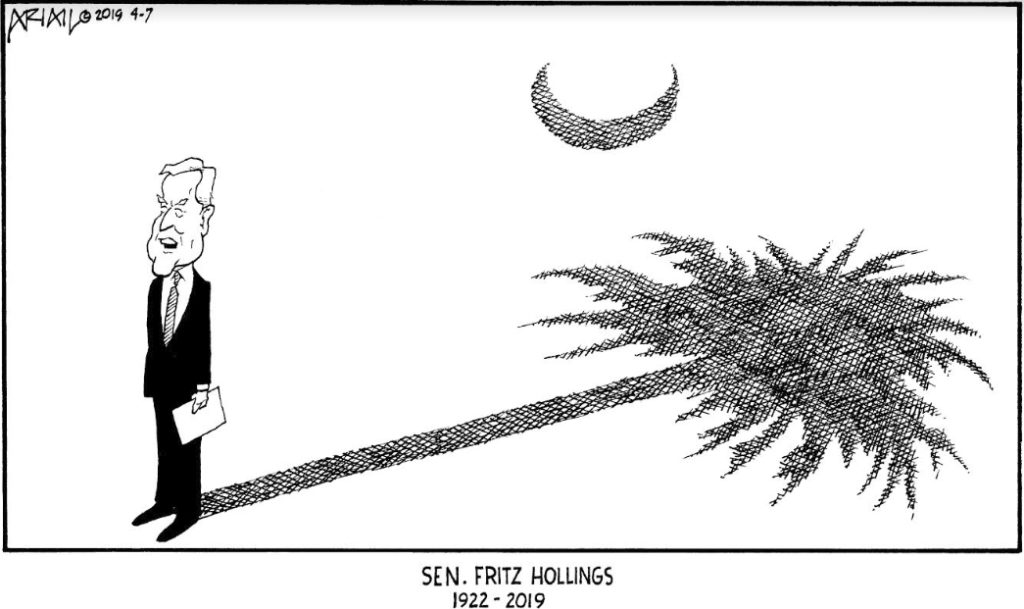
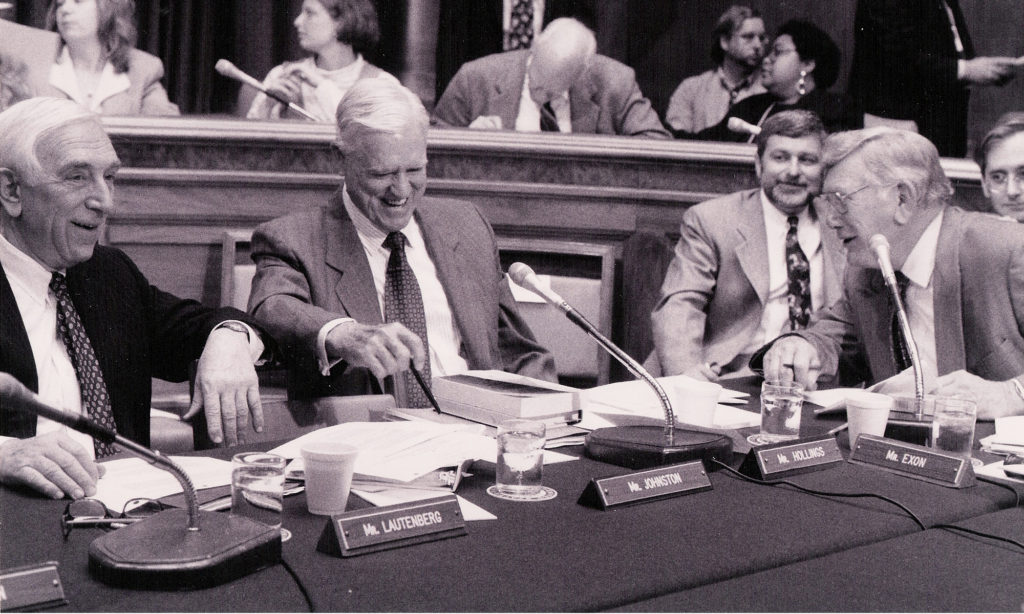
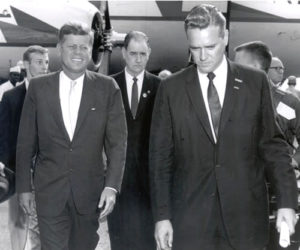
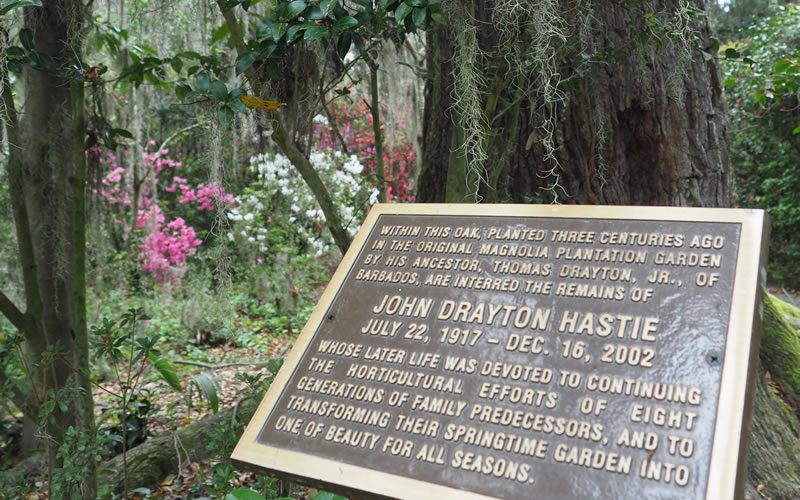
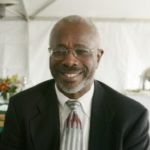
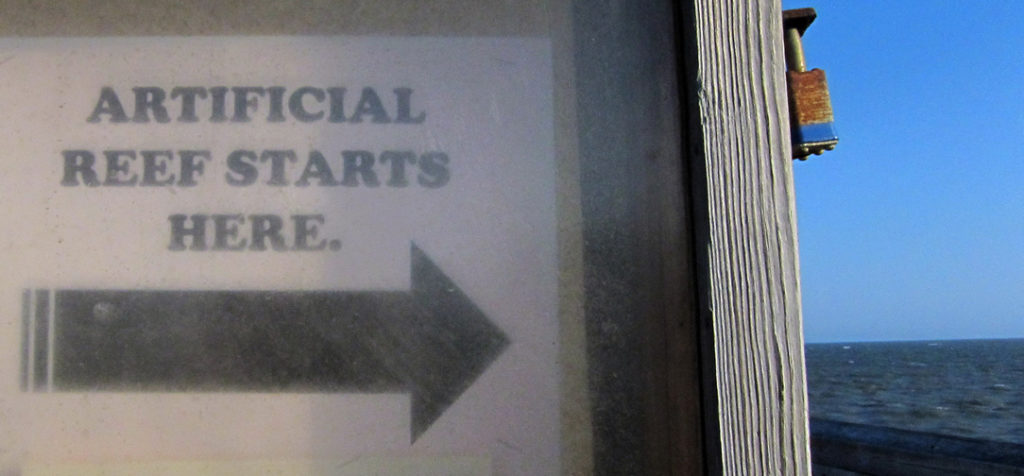
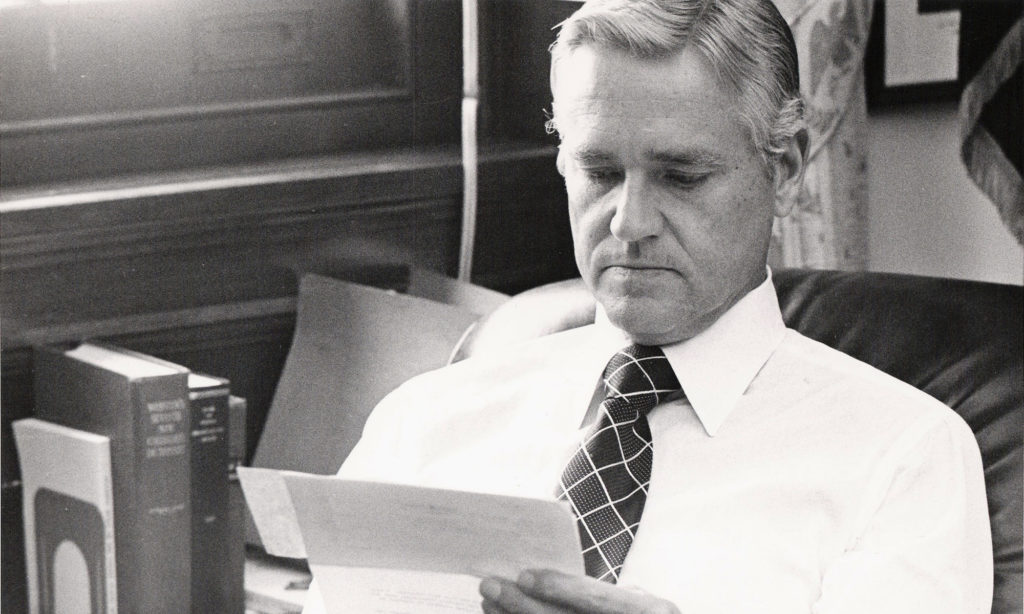
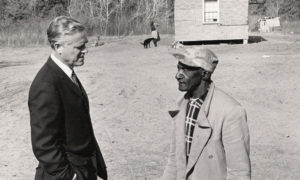

 We Can Do Better, South Carolina!
We Can Do Better, South Carolina!
























